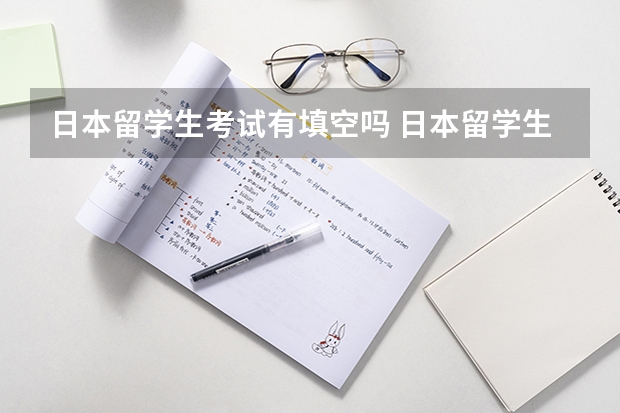雅思口语应试技巧思路拓展(雅思考官教你雅思口语PART1考试技巧)
2024-01-13 12:49:23 | 合力留学网
合力留学网小编给大家带来了雅思口语应试技巧思路拓展(雅思考官教你雅思口语PART1考试技巧)相关文章,一起来看一下吧。
以Part 1为例,无论话题是study,cooking,还是city, 都有可能会问到“Do you like it?”。这类问题看似简单易懂,但实际情况却是,不少同学回答完“Yes / No”以后就不知道如何继续下去了。因此,解决以下问题很关键:How to expand your answer?
我们就来看一个很基础的问题:“Do you like cooking?”。上口语课时,我惊讶地发现很多同学的回答竟如出一辙:“Yes, I like cooking because it’s interesting.” 同学们,你们可以想像,这样的回答在考官眼里多么boring。难道真的没有其他表达了吗?其实很多时候,你们缺乏的是idea而非language。要拓展你的答题思路,你需要做到三点:Explain(解释), Specify(具体化), Rephrase(改述)。
首先,You can always explain your idea. 我们不是说interesting不好,而是你需要解释“Why is it interesting?”为什么做饭有趣呢?比方说,“我热衷于让食物看起来很美味。I enjoy making food look tasty.”,“我可以按照自己的想法造菜肴。I can create new dishes based on my own idea.”,“别人喜欢吃我烧的菜让我很开心。I feel pleasant when others like eating my dishes.” 这几句话的用词和表达应该是大多数同学能够掌握的吧?虽然不那么“高大上” ,但却使你的答案有了内容,比罗列一排干巴巴的形容词奏效多了。
其次,You’d better further specify your explanation. 就以上一段的三句话为例,完全可以再往具体了说,具体化简单的方法就是give examples。比方说,“I enjoy making food look tasty. For example, when I’m making soup, I often put some spring onions in it to add a green color.”, “I can create new dishes based on my own idea. Taking egg as an example, Chinese people usually fry or boil egg, but once I tried mixing egg and fruit to make a dessert and it was a success!”, “I feel pleasant when others like eating my dishes. I remember one time I asked some friends to taste a banana cake I made. Everyone said the cake was delicious, which encouraged me a lot. Since then, I have been even more keen on cooking.” 加上了例子,答案是不是又丰富许多呢?而且这些例子中的表达真心不算难吧?
后,You can rephrase the same idea to make different expressions. 雅思口语考试中很注重persity(表达多样性),即使你没有新的想法,变换词汇和句型也未尝不是个好的选择。比如“喜欢做饭”的表达就只有“I like cooking”一种吗?当然不是!“Cooking brings me a lot of fun.”, “When I’m free, cooking would be one of my first choices to relax.”, “I can get a feeling of joy and pleasure from cooking.”这些句子虽然没有直接提到“喜欢”这个词,但哪一句不是表达出了喜欢的意思呢?所以说积累一些近义词和短语是很有帮助的。
附“Do you like cooking?”范例答案:
Yes, I definitely do. Cooking brings me a lot of fun. I enjoy making food look tasty. For example, when I’m make soup, I often put some spring onions in it to add a green color. Once I asked some friends to taste the soup I made. All of them said they liked it, which really encouraged me. From cooking, i can get a feeling of joy and pleasure. So when I’m free, cooking would be one of my first choices to relax.
Part 1 is generally something about you, where you are from, do you like something, what do you think of something etc.
So you can prepare before the test to answer some of these questions. Of course you can't prepare for all things, as the examiner may throw in a few curve balls (tricky). This exchange of questions is going to be about 5 minutes.
When asked a question, for example, “Where is your hometown?” you might answer“Shanghai” This is correct but hardly a worthy answer that will convince the examiner to expect a lot from you.
Give the place and then say something about it as this shows you can engage in a conversation and not just regurgitate (give) facts and names. Maybe say something about the city, location, size, the fact you might not know much about it because you left at a young age.
“I come from China's largest city Shanghai, on the coast; do you know the area of Minhang in Shanghai? That is the part of Shanghai I was born”
A bit more than just one word.
Chances are you will get a follow up question as this is a conversation and in conversations you garner (get) information from those you are talking too.
“Can you describe… to me” or “How has the city changed” or “What do you like/don't like… about…” or “What are the people like” or "Who lives in your neighbourhood" or"Where do you buy groceries"
Answer how you feel. This isn't a test on facts, if you lie all the way through then be prepared as lying or non-truths can come back to haunt you.
“I come from the state of Nanjing in Beijing, next to India” Completely wrong but no one is taking notes on that. You will get a follow up question about it so chances are you will have todig yourself out of that hole (talk your way out of a lie). The truth is often easier to talk about.
There is a good chance you will also be asked about school or work as that is one of the main questions asked to someone you don't know.
If you are in school then maybe something about enjoying school or not enjoying school or maybe something about a topic in school, why do you study that?
If you are working then questions about what your job might be, how long have you been there, do you like it, will you stay long?
Again you don't have to tell the truth, maybe just half truths in case you feel you shouldn't give out too much information.
“I am an International spy here to assassinate you”
If you feel uncomfortable about a question then, just as in a conversation, say so and give the reason in a polite way. Politeness goes a long way. The examiner will understand as they are nice people and will try to reword the question so it isn't so invasive (direct) but they will also be able to tell if you are saying that just to bypass a question you find difficult or just don't like.
Other questions are likely to be about basic everyday things. Something about your family, neighbours, workmates, perhaps the weather or something to do with food or shopping. These are everyday things, or what you might ask someone you just met. Every question will likely have a follow up related to them. They are direct questions about the topic.
So food questions may deal with local dishes or if you like sweet food or who should do the cooking and why?
Something about your family might be the size of the family, what someone in the family does, your role in the family etc.
Be clear and precise, don't go off topic too much and don't repeat, don't repeat what you want to say. Be yourself, take a deep breath before you speak and if you spend a second thinking about it before you start talking, then nod in acknowledgement to the question. A little dead air for a second or two is fine as that is natural in conversations. A second or two, not five or 10 seconds.
Here are some other topics to think about. You can probably answer questions on them in your native tongue so now practice using English only.
Family, Language, your routine, holidays and festivals, travel, sport, Foreigners in China, Entertainment like TV and reading, cultural areas like art and architecture.
There is something called the 5Ws of Who What Where When Why and How. Basic words used to gather information. Maybe 'Have' and 'Will' should be in there too.
Pick a topic and try making questions using the Ws along with how, have and will. This isn't how questions are chosen but it is good way to practice and to help you anticipate the next question.
Like Sun Tzu says, "If you know your enemies and know yourself, you will not be imperilled in a hundred battles... if you do not know your enemies nor yourself, you will be imperilled in every single battle." The questions are the battle not the examiner.
本文目录一览:

雅思口语应试技巧思路拓展
熟悉雅思口语考试的同学们知道,虽然口语话题种类繁多,但问题的形式并不那么复杂,甚至可以总结出一定的模式。今天上海环球青藤的卢好雨老师来谈一谈雅思口语应试技巧之思路拓展。以Part 1为例,无论话题是study,cooking,还是city, 都有可能会问到“Do you like it?”。这类问题看似简单易懂,但实际情况却是,不少同学回答完“Yes / No”以后就不知道如何继续下去了。因此,解决以下问题很关键:How to expand your answer?
我们就来看一个很基础的问题:“Do you like cooking?”。上口语课时,我惊讶地发现很多同学的回答竟如出一辙:“Yes, I like cooking because it’s interesting.” 同学们,你们可以想像,这样的回答在考官眼里多么boring。难道真的没有其他表达了吗?其实很多时候,你们缺乏的是idea而非language。要拓展你的答题思路,你需要做到三点:Explain(解释), Specify(具体化), Rephrase(改述)。
首先,You can always explain your idea. 我们不是说interesting不好,而是你需要解释“Why is it interesting?”为什么做饭有趣呢?比方说,“我热衷于让食物看起来很美味。I enjoy making food look tasty.”,“我可以按照自己的想法造菜肴。I can create new dishes based on my own idea.”,“别人喜欢吃我烧的菜让我很开心。I feel pleasant when others like eating my dishes.” 这几句话的用词和表达应该是大多数同学能够掌握的吧?虽然不那么“高大上” ,但却使你的答案有了内容,比罗列一排干巴巴的形容词奏效多了。
其次,You’d better further specify your explanation. 就以上一段的三句话为例,完全可以再往具体了说,具体化简单的方法就是give examples。比方说,“I enjoy making food look tasty. For example, when I’m making soup, I often put some spring onions in it to add a green color.”, “I can create new dishes based on my own idea. Taking egg as an example, Chinese people usually fry or boil egg, but once I tried mixing egg and fruit to make a dessert and it was a success!”, “I feel pleasant when others like eating my dishes. I remember one time I asked some friends to taste a banana cake I made. Everyone said the cake was delicious, which encouraged me a lot. Since then, I have been even more keen on cooking.” 加上了例子,答案是不是又丰富许多呢?而且这些例子中的表达真心不算难吧?
后,You can rephrase the same idea to make different expressions. 雅思口语考试中很注重persity(表达多样性),即使你没有新的想法,变换词汇和句型也未尝不是个好的选择。比如“喜欢做饭”的表达就只有“I like cooking”一种吗?当然不是!“Cooking brings me a lot of fun.”, “When I’m free, cooking would be one of my first choices to relax.”, “I can get a feeling of joy and pleasure from cooking.”这些句子虽然没有直接提到“喜欢”这个词,但哪一句不是表达出了喜欢的意思呢?所以说积累一些近义词和短语是很有帮助的。
附“Do you like cooking?”范例答案:
Yes, I definitely do. Cooking brings me a lot of fun. I enjoy making food look tasty. For example, when I’m make soup, I often put some spring onions in it to add a green color. Once I asked some friends to taste the soup I made. All of them said they liked it, which really encouraged me. From cooking, i can get a feeling of joy and pleasure. So when I’m free, cooking would be one of my first choices to relax.

雅思考官教你雅思口语PART1考试技巧
上海环球青藤为大家带来一份由雅思考官写的雅思口语part1考试技巧,各位考生可以根据雅思口语考官的建议来准备雅思口语考试。希望对大家雅思口语备考有所帮助。IELTS is set into three sections.Part 1 is generally something about you, where you are from, do you like something, what do you think of something etc.
So you can prepare before the test to answer some of these questions. Of course you can't prepare for all things, as the examiner may throw in a few curve balls (tricky). This exchange of questions is going to be about 5 minutes.
When asked a question, for example, “Where is your hometown?” you might answer“Shanghai” This is correct but hardly a worthy answer that will convince the examiner to expect a lot from you.
Give the place and then say something about it as this shows you can engage in a conversation and not just regurgitate (give) facts and names. Maybe say something about the city, location, size, the fact you might not know much about it because you left at a young age.
“I come from China's largest city Shanghai, on the coast; do you know the area of Minhang in Shanghai? That is the part of Shanghai I was born”
A bit more than just one word.
Chances are you will get a follow up question as this is a conversation and in conversations you garner (get) information from those you are talking too.
“Can you describe… to me” or “How has the city changed” or “What do you like/don't like… about…” or “What are the people like” or "Who lives in your neighbourhood" or"Where do you buy groceries"
Answer how you feel. This isn't a test on facts, if you lie all the way through then be prepared as lying or non-truths can come back to haunt you.
“I come from the state of Nanjing in Beijing, next to India” Completely wrong but no one is taking notes on that. You will get a follow up question about it so chances are you will have todig yourself out of that hole (talk your way out of a lie). The truth is often easier to talk about.
There is a good chance you will also be asked about school or work as that is one of the main questions asked to someone you don't know.
If you are in school then maybe something about enjoying school or not enjoying school or maybe something about a topic in school, why do you study that?
If you are working then questions about what your job might be, how long have you been there, do you like it, will you stay long?
Again you don't have to tell the truth, maybe just half truths in case you feel you shouldn't give out too much information.
“I am an International spy here to assassinate you”
If you feel uncomfortable about a question then, just as in a conversation, say so and give the reason in a polite way. Politeness goes a long way. The examiner will understand as they are nice people and will try to reword the question so it isn't so invasive (direct) but they will also be able to tell if you are saying that just to bypass a question you find difficult or just don't like.
Other questions are likely to be about basic everyday things. Something about your family, neighbours, workmates, perhaps the weather or something to do with food or shopping. These are everyday things, or what you might ask someone you just met. Every question will likely have a follow up related to them. They are direct questions about the topic.
So food questions may deal with local dishes or if you like sweet food or who should do the cooking and why?
Something about your family might be the size of the family, what someone in the family does, your role in the family etc.
Be clear and precise, don't go off topic too much and don't repeat, don't repeat what you want to say. Be yourself, take a deep breath before you speak and if you spend a second thinking about it before you start talking, then nod in acknowledgement to the question. A little dead air for a second or two is fine as that is natural in conversations. A second or two, not five or 10 seconds.
Here are some other topics to think about. You can probably answer questions on them in your native tongue so now practice using English only.
Family, Language, your routine, holidays and festivals, travel, sport, Foreigners in China, Entertainment like TV and reading, cultural areas like art and architecture.
There is something called the 5Ws of Who What Where When Why and How. Basic words used to gather information. Maybe 'Have' and 'Will' should be in there too.
Pick a topic and try making questions using the Ws along with how, have and will. This isn't how questions are chosen but it is good way to practice and to help you anticipate the next question.
Like Sun Tzu says, "If you know your enemies and know yourself, you will not be imperilled in a hundred battles... if you do not know your enemies nor yourself, you will be imperilled in every single battle." The questions are the battle not the examiner.

环球雅思托福培训费用
环球雅思的培训收费整体上而言不算贵,特别是人数较多的大班课,通常在2200-4000之间/期,小班课由于课堂人数较少,费用会稍高一点,从1000-25000/期不等,但但性价比更高。
当然,如你本身的基础薄弱,目标分又比较高,且有比较多的具体要求,比如希望1对1辅导,老师都必须有海外留学经历,口语得有外教参与等,如此一来,收费的确会比较贵,可能达到800-1200/课时。 合力留学网
接触过环球雅思的同学都会了解,环球雅思的培训收费在行业内是比较透明的,对于初次接触雅思学习的考生而言,可以以它的收费标准作为依据,来对比其他机构。
以上就是合力留学网小编给大家带来的雅思口语应试技巧思路拓展(雅思考官教你雅思口语PART1考试技巧),希望能对大家有所帮助。上一篇:雅思听力部分常考题型有哪些
下一篇:雅思兰黛红石榴水等适合什么年龄呀
与“雅思口语应试技巧思路拓展(雅思考官教你雅思口语PART1考试技巧)”相关推荐
栏目推荐
热点图文
-
 英国留学生考试怎么考 高中去英国留学需要参加什么考试
英国留学生考试怎么考 高中去英国留学需要参加什么考试2023-09-08 22:43:45
-
 日本留学生考试有填空吗 日本留学生考试常识解析
日本留学生考试有填空吗 日本留学生考试常识解析2023-09-06 09:43:20
-
 留学生法考怎么报名考试 司法考试的报名条件是怎样的?
留学生法考怎么报名考试 司法考试的报名条件是怎样的?2023-09-09 10:03:29
-
 艺考外国留学生怎么考试 艺术留学生应该了解的留学知识--VA艺术留学
艺考外国留学生怎么考试 艺术留学生应该了解的留学知识--VA艺术留学2023-09-09 09:56:18
-
 留学生需要考试吗现在 日本留学需要参加英语考试吗?
留学生需要考试吗现在 日本留学需要参加英语考试吗?2023-09-05 12:52:58
-
 外国留学生国内招生考试 留学生回国考研条件有哪些
外国留学生国内招生考试 留学生回国考研条件有哪些2023-09-01 03:30:44